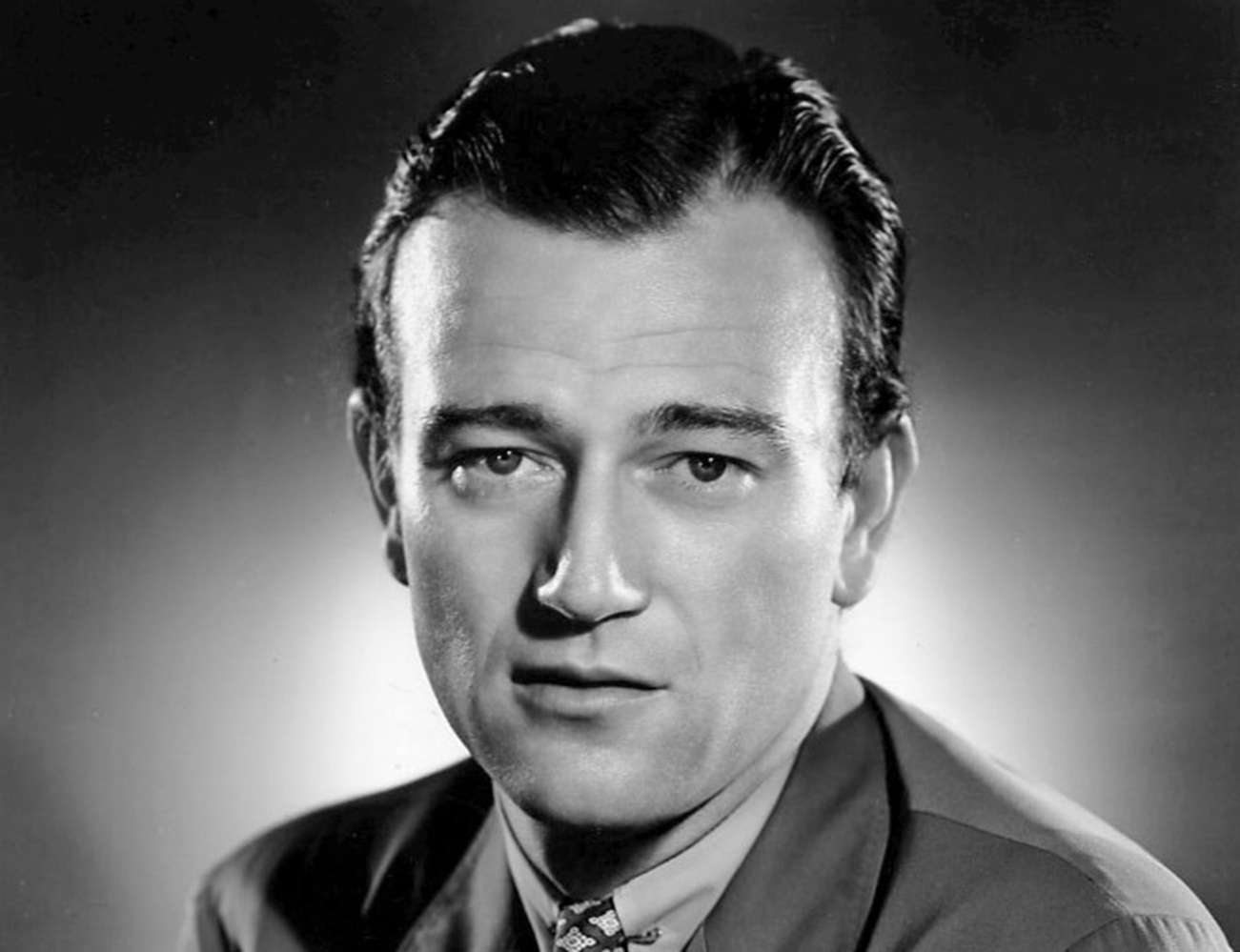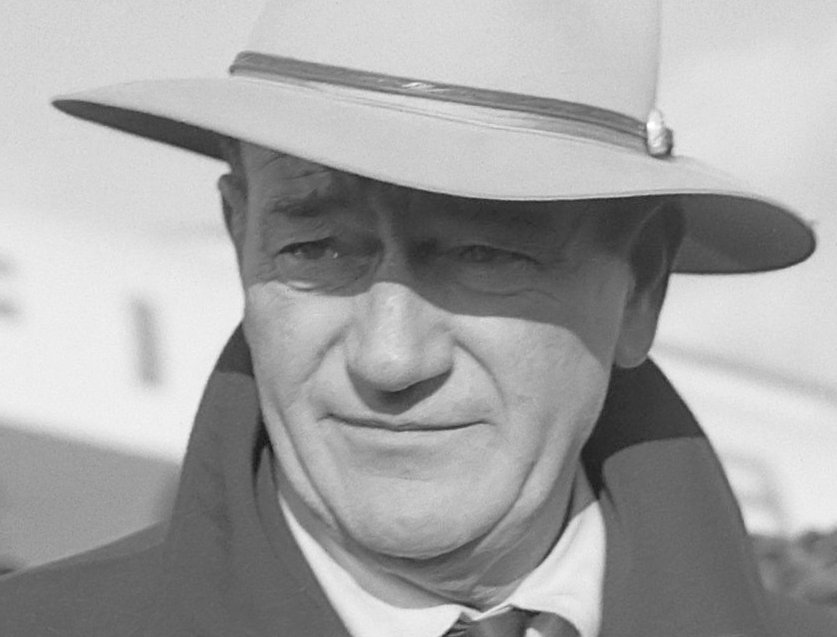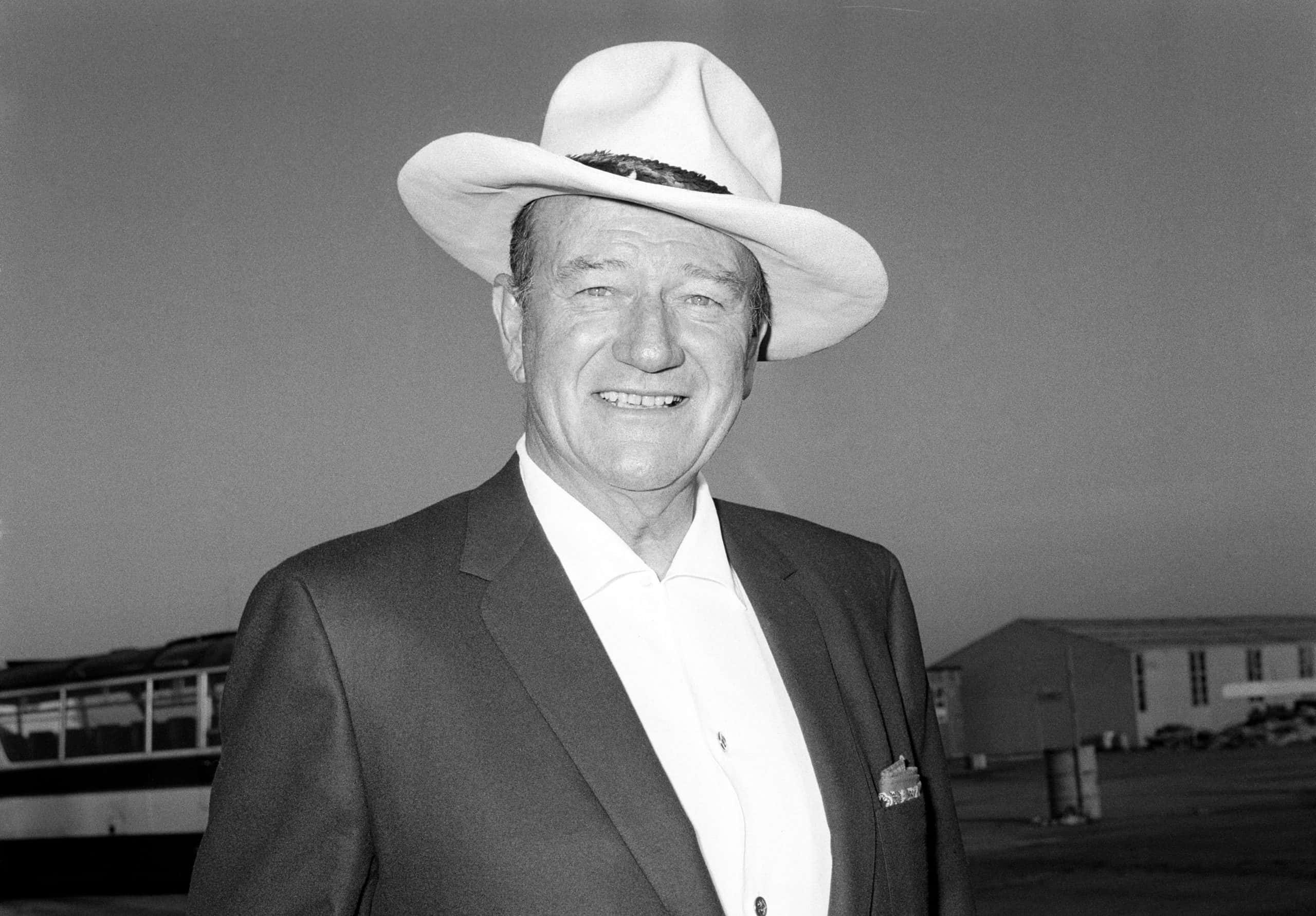John Wayne, The Tough Guy Accused Of Dodging The WWII Draft
John Wayne, a prominent Hollywood figure during World War II, faced controversy for not enlisting in the military, unlike his contemporaries such as Jimmy Stewart and Clark Gable. Despite being beyond the prime age for draftees and having family obligations that initially granted him a deferment, Wayne's growing film career and pressure from Republic Pictures contributed to his decision to remain stateside. This choice led to public scrutiny, as Wayne became the face of on-screen heroism without having experienced actual combat, which some critics viewed as overcompensation for not serving. During a 1943 USO tour in the South Pacific, Wayne received a lukewarm reception from soldiers who were skeptical of his manufactured heroism. Over time, Wayne's wartime decisions and his enduring image as a tough-guy patriot have continued to be a complex and uncomfortable aspect of his legacy, particularly as societal attitudes shifted in the post-Vietnam era.
John Wayne was 34 years old at the onset of WWII, married with four children, and received a 3-A deferment due to his family obligations, which was common for many men with dependents at the time.
Wayne's burgeoning film career and pressure from Republic Pictures, which did not want to lose its rising star, significantly influenced his decision not to enlist, despite his personal guilt over the matter.
While he portrayed heroic figures in films like 'Sands of Iwo Jima,' Wayne's actual wartime contributions were limited to morale-boosting tours, such as his 1943 USO visit to the South Pacific, where he was met with indifference by soldiers.
Critics, including writer Gary Wills, argued that Wayne's postwar persona of heightened patriotism and toughness was an attempt to compensate for his lack of military service during the war.
John Wayne's image as a symbol of rugged American heroism was built partly on the sacrifices of others, leading to a disconnect between his onscreen persona and real-life choices, which became more scrutinized as societal views evolved.
Historian William Manchester observed that Wayne's reception among soldiers in the Pacific was marked by skepticism, as they saw his Hollywood portrayal of war as sanitized compared to their brutal reality.
Wayne's decision not to serve was not uncommon for the era, but his status as a major cultural icon and his portrayal of war heroes in film made his case particularly controversial and noteworthy in the context of his legacy.
During WWII, many Hollywood stars, like Jimmy Stewart and Clark Gable, proudly enlisted to serve overseas. But one of America’s most enduring icons of toughness—John Wayne—remained stateside. Over the years, Wayne’s decision not to fight became a source of controversy. Though he was seen on-screen as the ultimate war hero, accusations of draft dodging would dog his reputation long after the war ended.
Why John Wayne Received A Deferment
When the US entered WW II, Wayne was 34 years old, married with four children, and well beyond the prime age for draftees. He initially received a 3-A deferment, designated for individuals with dependents whose support was considered essential. In other words, his family obligations—and later, his burgeoning film career—were considered valuable enough reasons to keep him out of uniform.
 Ned Scott, Wikimedia Commons
Ned Scott, Wikimedia Commons
Career Over Country
Studio pressure also played a major role in Wayne’s decision. Republic Pictures, the studio that held Wayne under contract, heavily discouraged him from enlisting. Wayne was becoming a major star after Stagecoach (1939), and Republic didn’t want to lose its biggest box office draw. Wayne reportedly struggled with guilt over not enlisting but ultimately prioritized his career, believing he could best serve by maintaining public morale through his films.
Private Regret, Public Image
While receiving a deferment was a far cry from dodging the draft, friends and biographers later suggested that Wayne deeply regretted not serving. Letters to friends reveal that he considered joining but feared losing custody of his children in a possible divorce. Meanwhile, he continued starring in patriotic war films like Sands of Iwo Jima (1949), crafting an image of bravery and sacrifice that didn’t quite match his real-life choices during the war years.
Touring The Pacific—And Facing Real Soldiers
In 1943, Wayne toured US bases in the South Pacific as part of a USO morale mission. Unlike Bob Hope or other entertainers warmly received, Wayne’s visit was met with a cooler reception. Soldiers—many of whom had seen intense combat—viewed Wayne’s brand of manufactured heroism with skepticism, even resentment.
 Hugo van Gelderen, CC BY-SA 3.0, Wikimedia Commons
Hugo van Gelderen, CC BY-SA 3.0, Wikimedia Commons
William Manchester's Account Of The Reception
Historian and Marine veteran William Manchester recounted that when Wayne visited Pacific outposts, the reaction was far from the hero’s welcome he might have expected. Manchester described soldiers as showing indifference, or worse, quiet contempt. For many of the battle-hardened troops, Wayne symbolized a Hollywood version of war that sanitized its brutal realities.
Gary Wills On Wayne’s War Record
Writer Gary Wills also weighed in on Wayne’s war record—or lack thereof—in his book John Wayne’s America. Wills noted that Wayne’s overwhelming postwar patriotism and tough-guy persona seemed, at times, like an overcompensation for not having served. He suggested that Wayne spent the rest of his career trying to live up to the soldier’s image he had helped create but never embodied firsthand.
Impact On His Later Career And Legacy
Despite the controversy, Wayne’s career didn’t suffer during or immediately after the war. In fact, his roles in films like The Longest Day (1962) and The Green Berets (1968) cemented his image as America’s ultimate tough guy. However, as generations changed and Vietnam-era cynicism grew, younger audiences and historians increasingly scrutinized Wayne’s choices, seeing a disconnect between the man and the myth.
 PA Images, Getty Images
PA Images, Getty Images
The Complex Man Behind The Legend
It’s important to view Wayne’s decision in context. While he didn’t enlist, he wasn’t alone—many men with families or essential jobs stayed home during the war. But Wayne’s case stings more sharply because he became such a prominent symbol of rugged American heroism, a role built in part on the sacrifices others made while he stayed in Hollywood.
A Patriot’s Image, A Civilian’s Reality
John Wayne’s story during WWII is a contradiction. He passionately supported the services, celebrated American values, and portrayed heroes on-screen—but didn’t serve when duty called. Whether seen as a patriot doing his part at home or an actor who let opportunity outweigh obligation, Wayne’s wartime legacy remains a fascinating, if uncomfortable, chapter in the life of one of America's most iconic figures.
You May Also Like:
Are You A History Buff? How Many Of These WWII Questions Can You Answer?
Mean Facts About John Wayne, The Sheriff Of Hollywood
25 High-Octane Facts About Action Movies
Sources: 1, 2, 3, 4